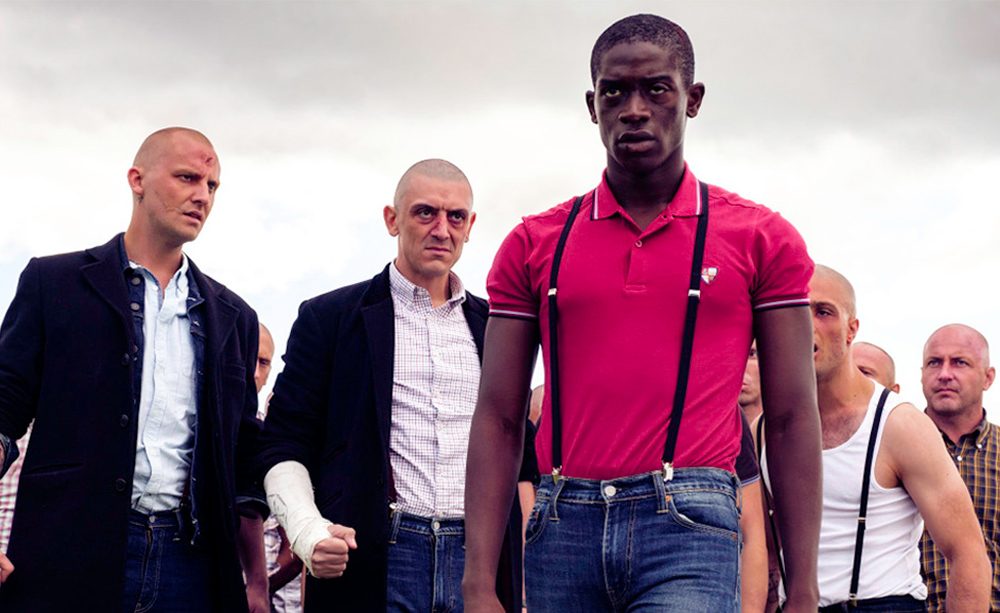With his directorial debut “Farming,” Adewale Akinnuoye-Agbaje has set an exceptionally high bar for himself to clear, but as you learn in the semi-autobiographical drama, he’s never had a problem surpassing the odds. It’s actually nice to have the reminder throughout that he directed it since life was anything but easy for the “Lost” star, growing up in working class England in the 1960s in order to pursue a better education than he’d receive in his native Nigeria, yet disassociated from both countries culturally since his black skin makes him an outsider in Tilbury and the cultural sensibilities he cultivates in Great Britain alienate him from his birthplace.
It is why, despite all reason, you completely understand what his onscreen surrogate Enitan (Damson Idris) sees admiring a group of white skinheads from afar at his prep school, hanging out at the edge of the field, tossing beer cans at the police officers who dare try to head them off. Identifying with their anger if not their skin pigment, Eni survives a beating from the gang and impresses their leader by returning with a hammer the next time he tries to approach them, making him a most unexpected member of the Tilbury Skins. It certainly makes sense if this turn of events makes you immediately roll your eyes, but Akinnuoye-Agbaje instead infuses enough authenticity into Eni that you won’t want to take them off the screen, watching the young man wreak havoc on the community, but driven out of hatred for no one more than himself.
Not only is the story obviously close to Akinnuoye-Agbaje, but he has a natural eye, working with cinematographer Kit Fraser to create an impressive experience by any definition, allowing one to sink into Eni’s continually confused consciousness where everyday grievances have begun to blur together while spiky imagery – haunting scenes of being taunted by the Tilbury Skins before joining them and goats being slaughtered in his native Nigeria – that burst through manage to stick, both in your mind and his. Eni’s is groomed to be self-loathing at the knee of his adoptive mother (Kate Beckinsale, navigating a tricky turn with the right amount of aplomb), who never misses an opportunity to mention that she only took him in to acquire two other girls, piling up foster kids and their requisite paychecks.
While the behavior shown is often brutal, there’s considerable sophistication in depicting how Eni is made to feel unwanted psychologically more than anything else and though there’s a nod towards redemption in the form of a teacher (Gugu Mbatha-Raw) who takes an interest in Eni academically, the director wisely resists any easy resolution, knowing the rough edges give “Farming” its power. By the time there appears to be light at the end of the tunnel, it’s completely earned and however unbelievable the film gets, Eni’s transformation feels entirely true. Although “Farming” is set at a particular cultural moment in British history as the punk rebellion was on the horizon, it nonetheless comes off as startlingly contemporary in illustrating how hate can become an identity all its own – and dangerous in the hands of someone absent anyone in their lives to model themselves on. Or in the fortunate case of Akinnuoye-Agbaje, a truly unique perspective that makes “Farming” compelling and unshakeable.
“Farming” does not yet have U.S. distribution.




